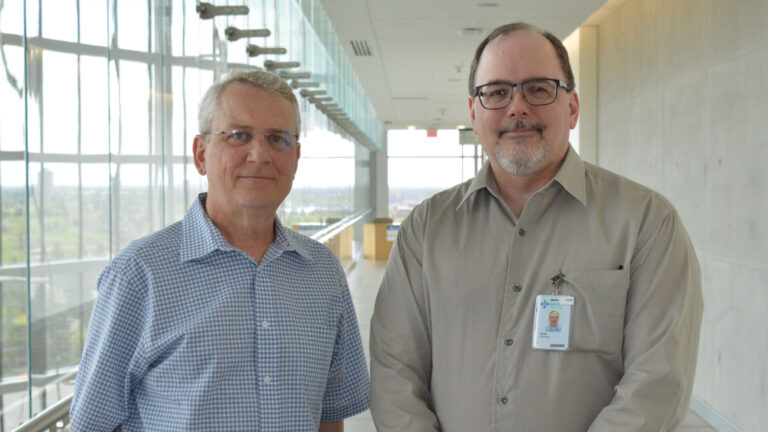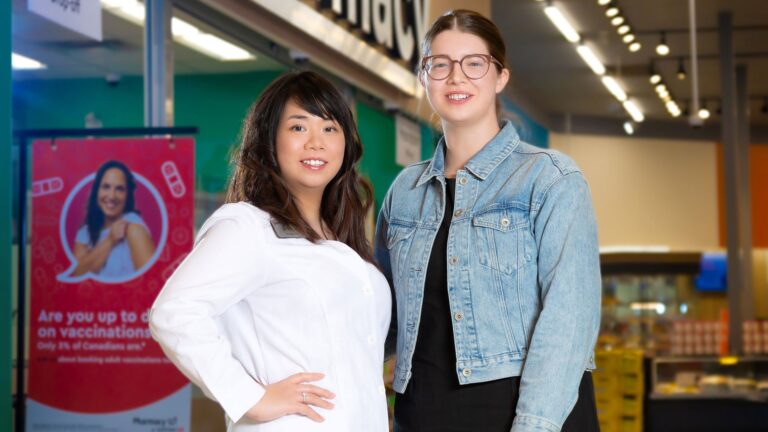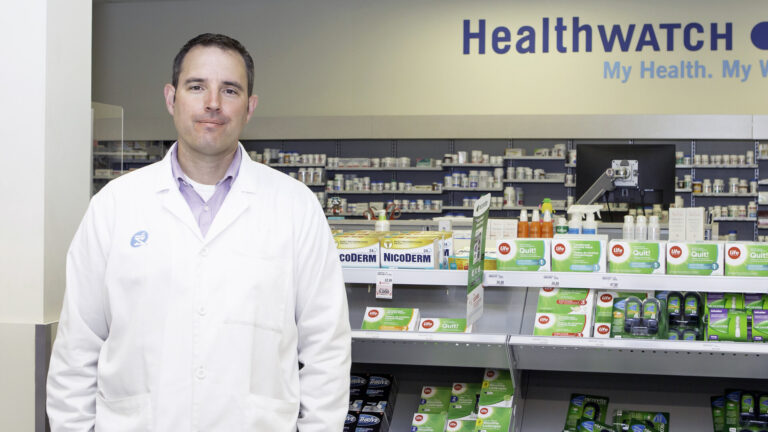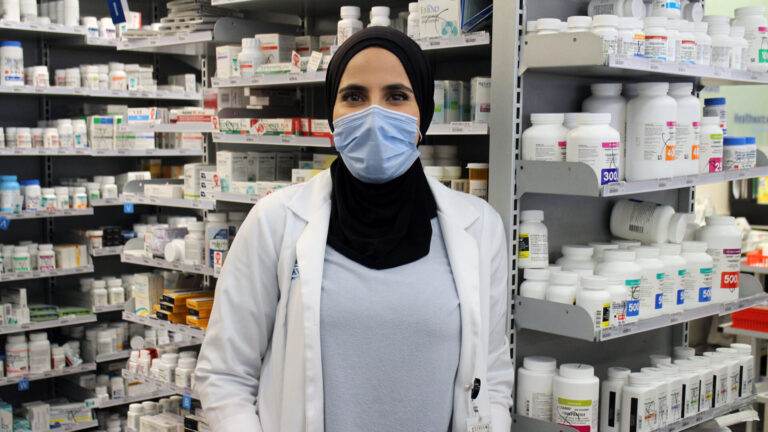
Most days, pharmacist Brian Dorish works in the pharmacy of the Cross Cancer Institute in Edmonton. But for three days a month, Brian is part of the Edmonton Prostate Interdisciplinary Cancer Clinic (EPICC)—an initiative that is new in Canada—which provides a collaborative model of care. Brian and the EPICC team care for patients with castrate-resistant prostate cancer (CRPC). These are patients who are no longer responding to the first-line treatment of testosterone suppression alone.
Because of the positive impact the clinic has made on patient experiences, the EPICC team was named a winner of the 2019 Health Quality Council of Alberta (HQCA) Patient Experience Award.
The team includes three urologic surgeons, three medical oncologists, one radiation oncologist, one oncology nurse coordinator, and one pharmacist. Brian’s role is to review and update treatment regimens with patients and coordinate their prescriptions.
“Sometimes when the doctor needs to choose between therapies, there isn’t a compelling reason to pick one over the other, so I will look at things like interactions with anything else the patient might be taking,” said Brian. “Sometimes that can guide the physician on which way to go with therapy. On future visits, I’ll confirm things are going well and that the patients are taking the drugs correctly. I also act as a bridge between the family physician and community pharmacy when there are potential interactions with their new prostate cancer therapy.”
Patients of the clinic, including Paul Chell of Edmonton, appreciate having one point of contact for their treatment. There are fewer referrals needed and better communication between health professionals, leading to holistic and comprehensive care.
“I think it’s given me a higher level of confidence in my care knowing a whole team is looking over my case,” said Paul. “Their objective is to come up with team solutions.”
For Brian, being able to have a direct impact on his patients has been a rewarding experience.
“We’ve got a good team of people and we work well together,” said Brian. “It does give a sense of job satisfaction to be able to know you’re having an impact. On most other days, I’m in a non-clinical area of the pharmacy. I’m not in any direct patient contact, so it’s nice to have this as part of my role.”




